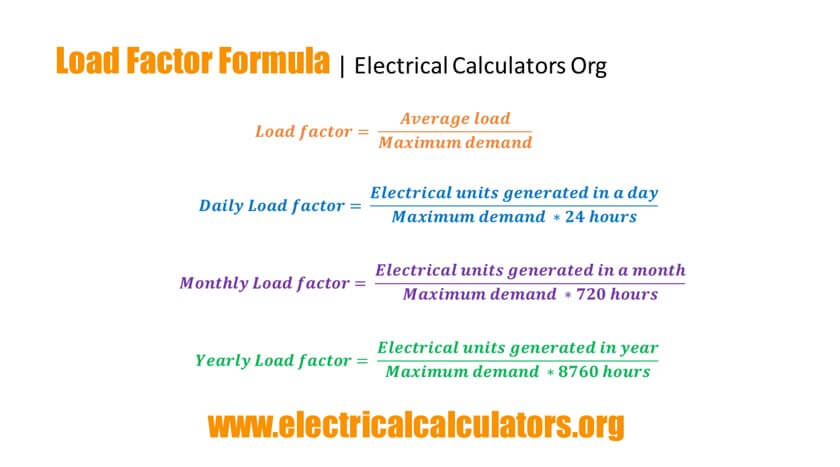The load factor is defined as the ratio of average load to the maximum demand for a given time period.
Mathematically:

Load factor = Average load/Maximum demand
Load factor can also be expressed in terms of generated units of electricity for a given period of time.
If the plant is in operation for T hours,
Load factor = Electrical Units generated in time / (Maximum demand * time in hours)
Depending on time period the load factor can either be daily load factor, monthly load factor or annual load factor provided the time is a day or month or year.
- Daily Load Factor = Electrical Units generated in day/ (Maximum demand * 24 hours)
- Monthly Load Factor = Electrical Units generated in day/ (Maximum demand * 720 hours)
- Yearly Load Factor = Electrical Units generated in day/ (Maximum demand * 8760 hours)
Good to know
- Load factor is always less than 1: Since the average load is always smaller than the maximum demand, the load factor is always smaller than 1
- The higher the load the more economical is the overall system: A higher load factor means lesser maximum demand which means lower capacity of the power station as well as the power equipment